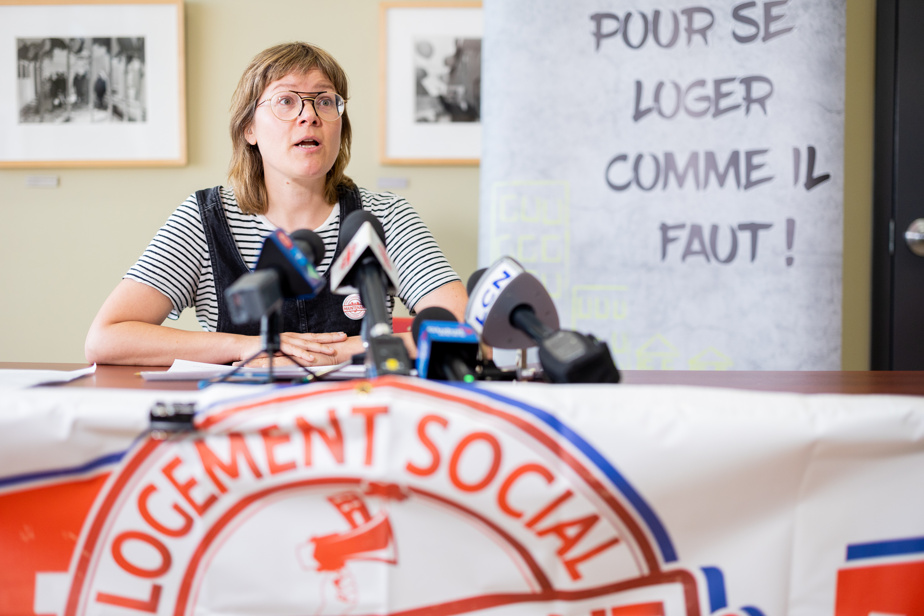Households who find themselves homeless on July 1 will now have to pay for part of their emergency accommodation if they cannot find a new apartment after two months.
The government says it wants to prevent abuses, but the introduction of this measure, in the midst of a housing crisis, has caused tenants’ defense groups to jump, denouncing the lack of government investment in social housing and in the protection of tenants, to prevent more families from ending up on the streets.
“We are talking here about last resort assistance, for people who are desperate because they have not been able to find a new apartment. And meanwhile, the government is making it more difficult to access emergency aid,” protests Véronique Laflamme, spokesperson for the Popular Action Front in Urban Redevelopment (FRAPRU).
Every year, a few hundred Quebec households who have not found new housing, mostly around July 1, receive help from their municipality to be temporarily housed, especially in motels, while waiting to find a roof. The invoice is reimbursed by Quebec.
For example, in Montreal, 136 households used emergency accommodation in 2022, usually for a few weeks. But for some, finding accommodation may take longer.
After two months, the households accommodated will have to pay a financial contribution. Those on a waiting list for low-rent housing will have to pay half the median rent for a studio apartment in their area, and others will have to pay the equivalent of that median rent. For example, the median rent for a studio apartment in Montreal is $725.
In addition, “if a household refuses to rent accommodation that matches their choice of location in the relevant municipality,” then they will have to pay the full cost of emergency accommodation, says the new Accommodation Program temporary and assistance in finding accommodation (PHTARL), published Wednesday in the Gazette officielle du Québec.
The purpose of this change? “In past years, we have seen abuse by some people who did not accept the accommodation found and who preferred to stay in hotels at government expense. Emergency aid must be used first and foremost to support people while they are looking for housing,” replies Philippe Couture, press officer for the Minister of Housing, France-Élaine Duranceau. “This clause was introduced in order to avoid abuse and not to penalize people who are looking for a roof over their heads. »
In 2022, 79 households benefited from emergency accommodation for more than 60 days, according to data from the Office municipal d’habitation de Montréal.
Véronique Laflamme deplores the government’s logic on this subject. “Most people want to find an apartment as soon as possible, but it takes an average of five years to get a place in an HLM,” she recalls. In addition, some available accommodation may be unsanitary or overpriced.
She also points out that people who voluntarily leave their accommodation, but who then do not find a new one, are not eligible for emergency accommodation. “But it can be people who have given in to pressure from a landlord, who can no longer afford to pay their rent, or whose apartment has become too small for the family,” she says.
“It is absurd because the government is introducing this in a context where it is not working upstream to avoid evictions of tenants, nor to increase the stock of social housing. »

